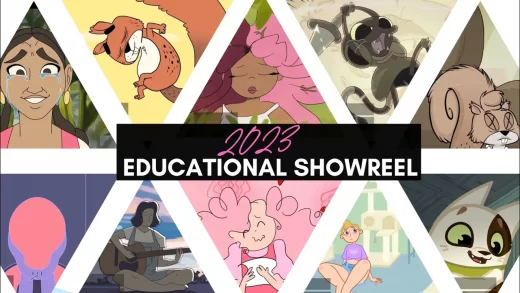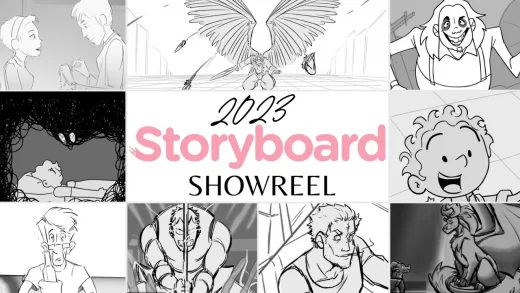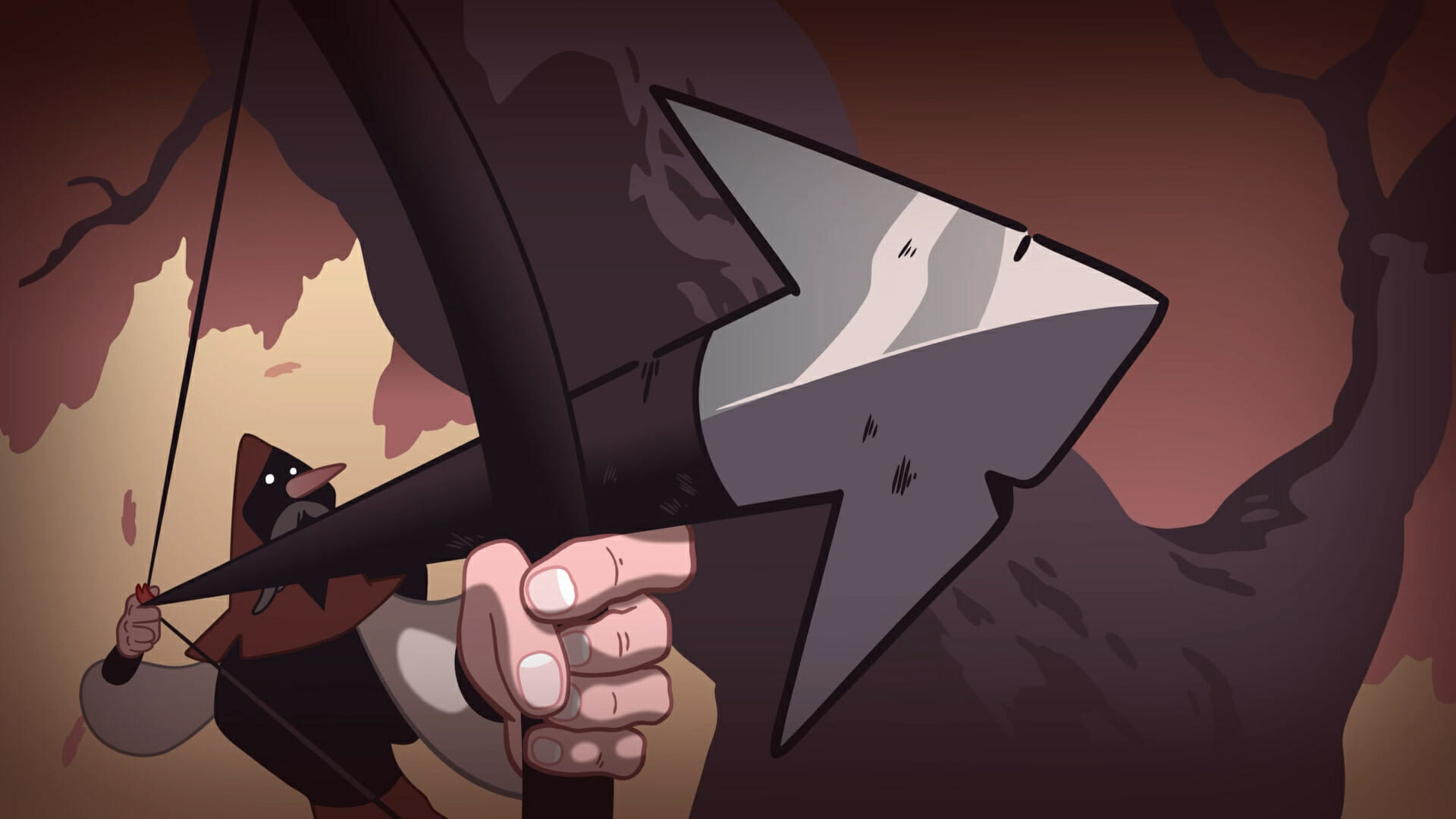
HUNT is part of Rumpus Animation’s fantastic series of indents; short animated calling cards representing the craft and capabilities of talent at the Bristol-based studio. This fast-paced short from director and animator Luke Hyde is packed with action sequences and a surprise twist that will keep you at the edge of your seat. In HUNT, an armed but somewhat hapless huntsman stalks his prey through an autumnal forest, which Luke drew beautifully by hand.
Luke tells us that HUNT was born from a sketch he had made for the Inktober challenge, which he then developed from a drawing into a full animated sequence. Planning HUNT was an exciting hands-on experience, from researching the traditional garb worn by medieval archers for his main character, to choosing colours for the short — Luke opted to get feedback from his audience on social media before moving forward with his chosen palette.
Luke tells us about his hand-drawn approach to character design, bringing to life his protagonist hunter and his quarry of a pack of deer in Harmony. He also reveals the techniques behind the trickery with scale and perspective that we see as the hunter’s arrow take flight. Enjoy HUNT and read on for our full interview with Luke Hyde.
We enjoyed your short, Luke! Please describe your film and what it means to you.
Luke: Hello Toon Boom and thank you so much! I made this animation as part of a series of short idents for Rumpus Animation. I was given the rare opportunity to have full creative control making this, so it really means a lot to me!
What does HUNT take inspiration from?
Luke: The starting inspiration came from an Inktober drawing I did of a gremlin sitting in a tree hunting a deer with a slingshot. I believe the prompt was ‘sling.’ From that image, I created a short story around it, changing the gremlin into a human in the process. I was also determined to give the whole thing an autumnal, mysterious feel, which comes from being a huge fan of the cartoon network series Over the Garden Wall.
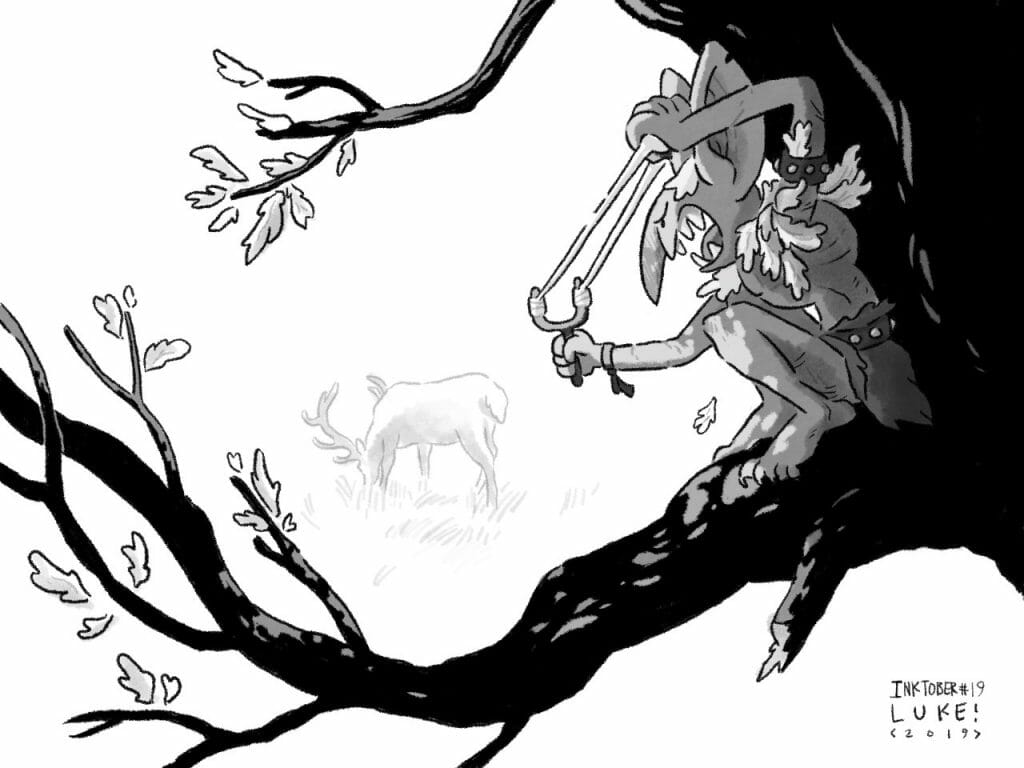
What was your approach to the character design?
Luke: A lot of artists draw dozens of characters to explore and refine what they’re looking for. I’m impatient. So I think I just went with the first or second character I sketched up.
I also did some research into what kind of clothes medieval archers used to wear, which helped a lot in deciding on his baggy trousers and sleeves. One design element that I really wanted was to give his face a diamond shape, like an arrowhead. As for his colour scheme, I tried out several alternatives which I posted on my Twitter account for feedback. I tend to use social media a lot for that!
How did the character design or rigging process differ between the humanoid hunter and the pack of deers?
Luke: The process was the same for both, as I actually didn’t go with character rigs. Partially because I wanted to keep it hand drawn, but also because I wanted to keep it dynamic. Having the blades of grass going between his hands at the beginning would have been a rigging nightmare for me. Another reason I went hand drawn is I find cleaning up frames in Harmony far easier than any other software I’ve used.
I suppose I did partially rig the falling leaves though. For those, I hand animated a leaf spinning around slowly, then tweened the X and Y positions on the layer. Does that count as rigging?
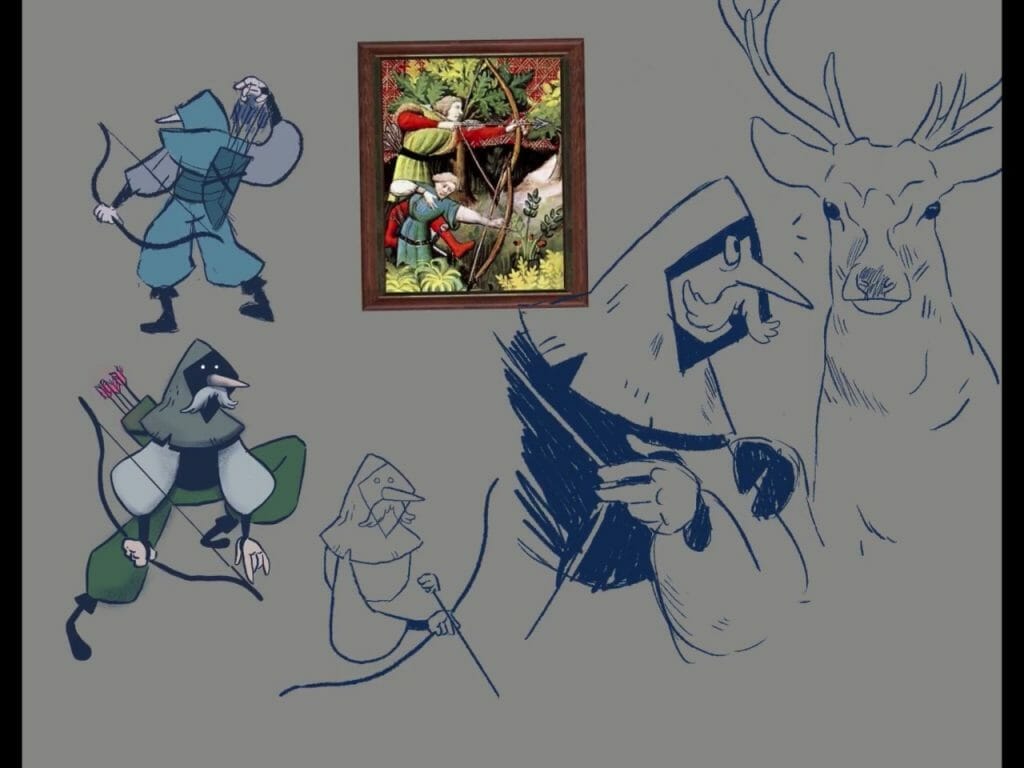
How would you describe the colour palette you used in HUNT?
Luke: I suppose that ‘autumnal’ is the best answer. That colour scheme took many attempts before I liked it, so I appreciate you asking about it!
Can you tell us how you executed the movement we see in the arrow flight scene?
Luke: I started with drawing out the whole movement of the arrow. Once I had the pacing and action I liked, I added in the speed lines, deer and foliage. By using some fiddly tricks, shifting and scaling shapes, I was able to give the impression the arrow was moving through a 3D space.
What tools or techniques did you employ in Harmony that helped you bring HUNT to life?
Luke: The cutter tool, hands down! God bless the cutter tool. I use it during the clean-up process for selecting and trimming off lines. Without that tool, cleaning up the lines would be hard work. As for techniques, I made some good use of the layer masks for things like the shadows and light reflections in the arrowhead.
Tell us about a day in the life as an animator at Rumpus Animation…
Luke: We have a small studio next to the harbour in Bristol. It’s a lovely space where we get a lot of wonderful creative types working on various projects, a lovely view of the bay, and full access to some pricey-but-artisanal food. A standard day for me is cycling to said studio, struggling with my keys in the front door, putting the coffee machine on, then settling down for a day of drawing. There’s normally 3-to-6 of us in the studio, depending on who makes it in that day. There’s also an office dog that sometimes makes an appearance; all the best animation studios have one of those. The day gets broken up by the occasional video call, studio banter, and sometimes surprise visits from large groups of confused-looking students.
What advice do you have for fellow animators looking to execute a short film concept?
Luke: Make sure you have a clear concept or theme. Once you have that, it will make the rest of the process so much easier, as you will have that idea to base all your choices from. I’ve learned this lesson the hard way.
Any interesting future projects coming up that you can share?
Luke: In terms of professional work, we are currently working on the new Disney game Illusion Island. With personal work, I’m mostly making comics about my own character, Bacon the dog, and potentially a point-and-click adventure game. Fingers crossed I can do both.
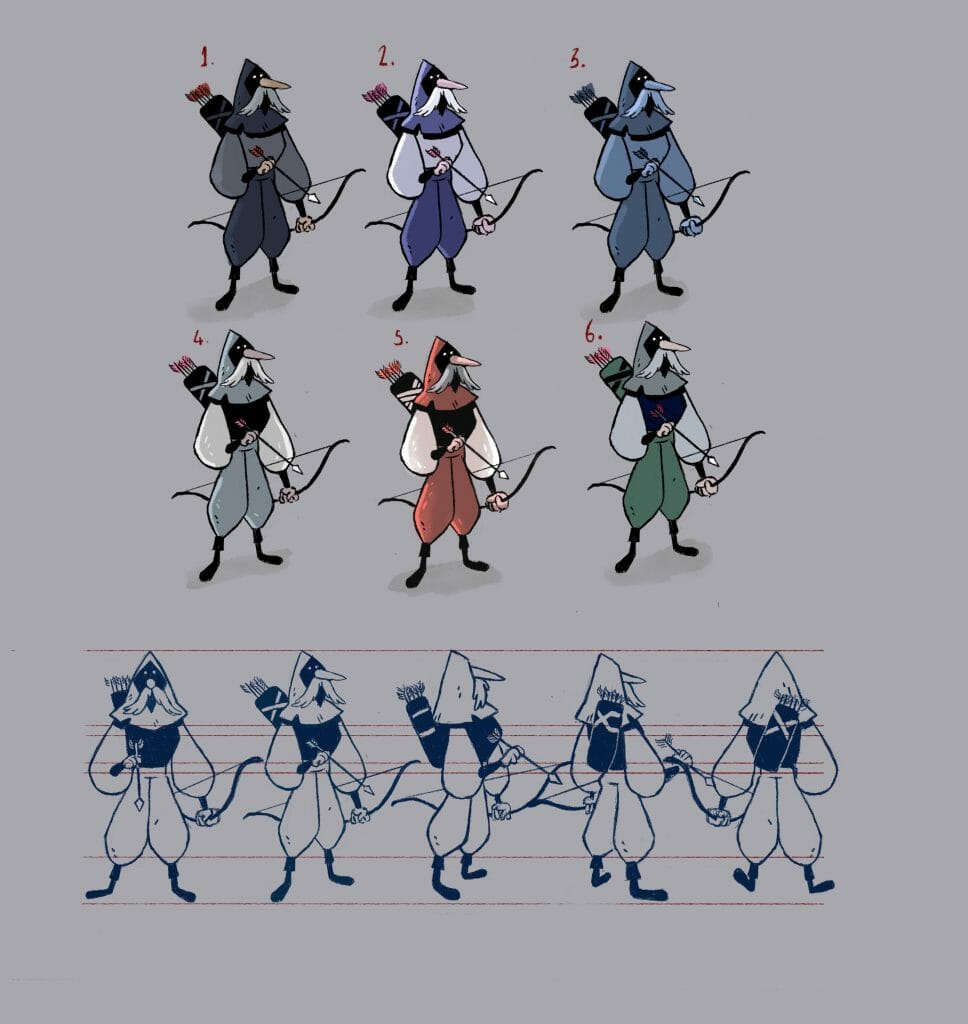
- Want to see more of the Rumpus Idents? Be sure to visit Rumpus Animation’s website to watch the full series.
- Interested in using Harmony for your next animated project? Artists can try our software free during the 21-day trial, with no credit card required.


